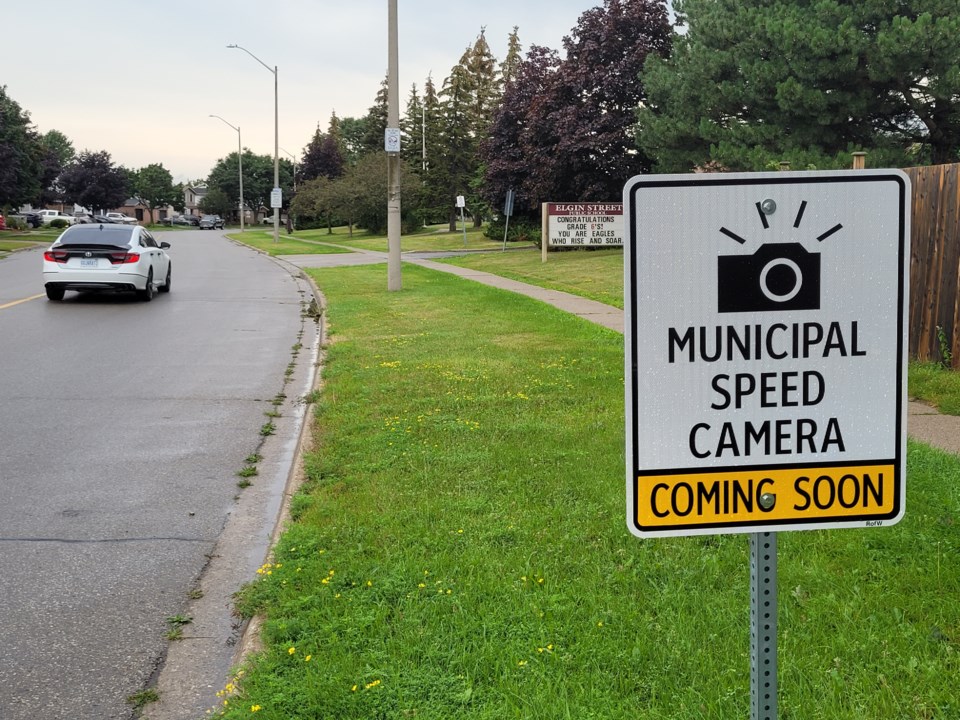Revenue from the region's municipal speed cameras is on track to meet the $1.5 million 2024 estimate for the program.
As of Sept. 30, revenue from the 16 school zone locations where MSCs are active was about $1.1 million. Those sites share four cameras that are rotated around the region.
Sixteen new sites were already approved and will come on line early next year.
The region's administration and finance committee approved a plan this week that will see fines for the program double to match speeding fines in community safety zones.
That plan, deferred from August due to concerns from council about the new fines, also implements a new administrative penalties program and redefines community safety zones with new signage and extended protected areas.
The region says most municipalities with camera-based enforcement programs have adopted the AP framework for its efficiency and cost-effectiveness.
"It provides citizens with a faster, simpler, and less intimating way to dispute tickets through a screening officer."
Appeal decisions are communicated within weeks, unlike the months-long provincial offences court process.
It means anyone who wants to appeal a fine will have their case heard by a regionally appointed hearing officer at the Kitchener Provincial Offences Court on Queen Street.
The region has hired 16 new full-time positions to administer the program, including automated enforcement officers, municipal screening officers and council appointed hearing officers, most of which are legislated by the province.
Eight more will be hired by the end of the year and 10 additional staff will be hired in 2025.
Projected 2024 operating costs, including staffing and training, communications, software licensing, general program costs and daily camera lease rate is around $2 million. Capital investment for 16 additional cameras is about $800,000.
Regional staff were working toward a November launch for the AP program, but due to the delay at council, the date has been pushed into the new year.
Acting commissioner of transportation services Doug Spooner told the committee on Tuesday staff needs six to eight weeks lead time from approval to implementation and "early December is a terrible time to build awareness."
Education sessions with local councils are already underway, however, with one scheduled for Cambridge on Oct. 22.
Coun. Chantal Huinink said throughout discussions about the expanded speed camera program she felt sidetracked by concerns the system could further marginalize people experiencing financial hardship should they get a ticket in the mail.
"I want to promote that this doesn't marginalize people experiencing financial hardship in the sense there are multiple ways and multiple opportunities to appeal," she said. "What it does do is promote community safety...and that's something we all need to take stronger action to support."
The region says since its implementation in 2021, the MSC program has improved speed compliance by 63 per cent in those areas.
Coming soon signs have been posted at three new sites in Cambridge with activation set to take place in the first two months of 2025.
Those sites include Holiday Inn Drive near Jacob Hespeler high school, Saginaw Parkway near Clemens Mill school and Avenue Road near St. Peter Catholic Elementary School.
Site work, testing and calibration all has to happen before the cameras are activated.
"We've got a tagline...'new year, new habits' and we think that January is a much better time to introduce this program," Spooner said.
